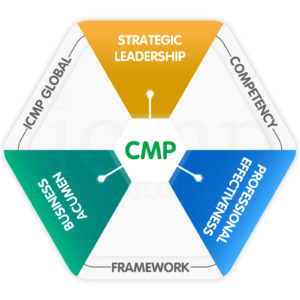HOP – Passport to Prosperity
- About Us
- Professional Certifications
- IT Skills
- Trainings & CPE
- Overview
- Time & Stress Management
- Conflict Management
- Team Building & Leadership Skills
- Finance for Non-Finance Professionals
- Cost Management for Non-Commerce Professionals
- Corporate Governance in Public Interest Companies
- Emotional Intelligence
- Systematic Inventive Thinking
- Professional Ethics
- Entrepreneurship & Innovation
- Consulting Services
- Membership Network
- Think Tank & Advocacy
- About
Us - Professional
CertificationsHouse of Professionals is offering Leadership, Management, and Specialized Certification programs in collaboration with the Institute of Chartered Management Professionals, USA with the objective to enhance the skills set and productivity of individuals. As the vital factor that catch employers are the professional certifications on candidate’s profile which encourage them to select and promote the person from the pool of several candidates.
- IT
SkillsProgramming & Tech
E-Commerce
Graphics & Design
Digital Marketing
Accounting
Office Management
- Trainings &
CPE - Consulting
ServicesIT Services
Engineering Services
- Membership
Network - Think Tank &
Advocacy
- About
Us - Professional
CertificationsHouse of Professionals is offering Leadership, Management, and Specialized Certification programs in collaboration with the Institute of Chartered Management Professionals, USA with the objective to enhance the skills set and productivity of individuals. As the vital factor that catch employers are the professional certifications on candidate’s profile which encourage them to select and promote the person from the pool of several candidates.
- IT
SkillsProgramming & Tech
E-Commerce
Graphics & Design
Digital Marketing
Accounting
Office Management
- Trainings &
CPE - Consulting
ServicesIT Services
Engineering Services
- Membership
Network - Think Tank &
Advocacy
Mentoring and Advising
The Mentoring and Advising training program is designed to equip individuals with the skills, knowledge, and best practices needed to guide, support, and inspire others in their personal and professional journeys. At its core, this program distinguishes between the roles of mentoring and advising, laying a clear foundation for what each entails. Participants delve deep into effective communication techniques, understanding the importance of active listening, empathy, and constructive feedback. The course places a strong emphasis on building meaningful, trusting relationships, understanding the diverse backgrounds and perspectives of mentees, and setting actionable goals. It also tackles potential challenges in the mentoring relationship, offering solutions for conflict resolution and addressing any biases. With the growing importance of digital interactions, the program integrates elements of virtual mentoring, ensuring adaptability in today’s digital age. Throughout the course, there’s a continuous focus on self-reflection, ensuring that mentors and advisors recognize the importance of self-care and personal growth. The end goal is to produce competent mentors and advisors who can foster positive change, guide with confidence, and champion the growth and development of their mentees and advisees.
- Introduction to Mentoring and Advising : Definition and differences between mentoring and advising; and Historical context and evolution of mentoring
- The Role and Responsibility of a Mentor/Advisor: Setting boundaries; Ethical considerations; and Building trust and maintaining confidentiality
- Understanding Mentees/Advisees: Generational differences and perspectives; Recognizing diverse backgrounds, experiences, and worldviews; and Assessing needs and expectations
- Effective Communication Skills: Active listening; Constructive feedback; and Difficult conversations and conflict resolution
- Building Strong Relationships : Building rapport; Empathy and understanding; and Nurturing mutual respect
- Goal Setting and Development Planning : SMART goals; Creating actionable plans; and
- Monitoring progress and adjusting strategies
- Mentoring/Advising Strategies and Techniques : Models of mentoring (e.g., peer mentoring, group mentoring); and Advising in different contexts (academic, professional, personal)
- Motivation and Empowerment : Recognizing achievements; Encouraging self-reflection; and Fostering independence and self-efficacy
- Challenges in Mentoring/Advising: Overcoming resistance or lack of engagement; Managing personal biases; and Handling the conclusion or transition of a mentoring relationship
- Cultural and Diversity Considerations: Cross-cultural mentoring; Addressing unconscious biases; and Understanding and respecting differences
- Digital Mentoring and Advising: Utilizing technology and platforms; Building virtual relationships; and Digital communication best practices
- Self-Care and Reflection for Mentors/Advisors: Avoiding burnout; Setting personal boundaries; and Continuous self-improvement and learning
- Assessment and Feedback: Evaluating the effectiveness of the mentoring/advising relationship; Soliciting feedback from mentees/advisees; and Iterative improvement
- Conclusion and Continuing Development: Lifelong learning as a mentor/advisor; Networking and community involvement; and Exploring further resources and training
- Enhanced Skills: Trainees will acquire effective mentoring and advising techniques, enabling them to guide others more efficiently.
- Clear Boundaries: Understand the distinct roles and responsibilities of mentors and advisors, ensuring healthy relationships with mentees and advisees.
- Effective Communication: Improved active listening and feedback skills, leading to more productive and constructive interactions.
- Cultural Competence: Increased awareness of cultural and diversity considerations, allowing trainees to mentor a diverse range of individuals effectively.
- Goal-Driven Guidance: Mastery in setting, monitoring, and achieving specific goals with mentees and advisees.
- Stronger Relationships: Ability to build and nurture trusting and mutually beneficial mentoring relationships.
- Digital Proficiency: Skills to leverage technology for digital mentoring, expanding their reach and adaptability.
- Self-Care Awareness: Strategies for maintaining personal well-being and avoiding burnout, ensuring longevity and consistency in their mentoring roles.
- Conflict Resolution: Enhanced ability to manage challenges, conflicts, and difficult conversations, leading to smoother mentoring processes.
- Feedback Utilization: Competence in both giving and receiving feedback, refining their approach for continuous improvement.
- Networking and Growth: Exposure to a community of mentors and advisors, offering opportunities for collaboration, growth, and continuous learning.
- Increased Confidence: Assurance in their role as mentors or advisors, leading to more impactful guidance and support to those they mentor or advise.
Preferably, a person with 03 years of experience or on employer recommendation
Flexible options to attend the training programs are available. You may participate in the following manner:
- On-location (managed by HOP or your Employer)
- On-line
For any further information and registration, you may contact on the following:
- For registration, visit us at
House of Professionals L-04 Johar Town, Near Emporium Mall, Lahore. - For more details
Call/SMS/WhatsApp at 03018447766, 03028443914

